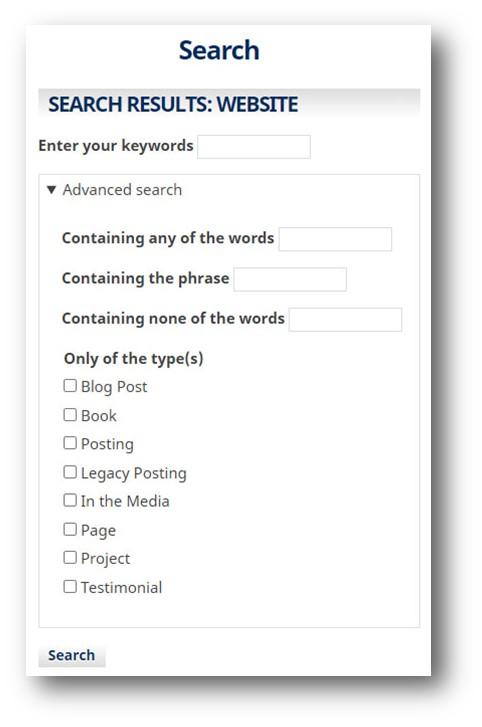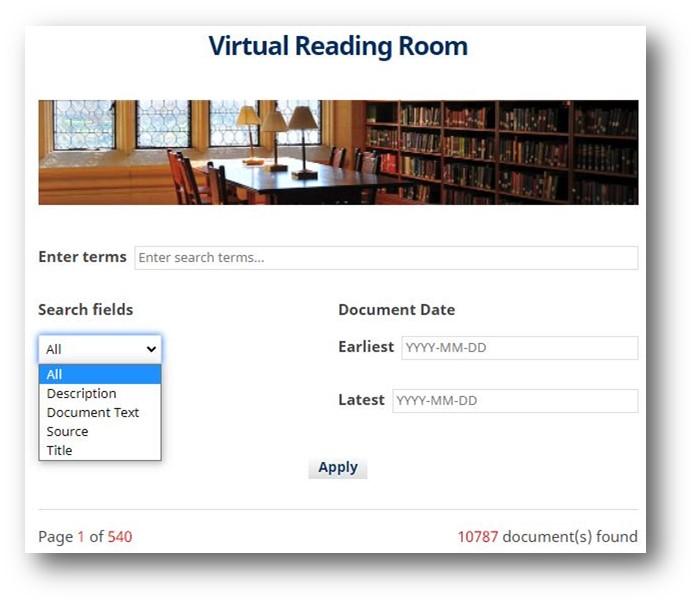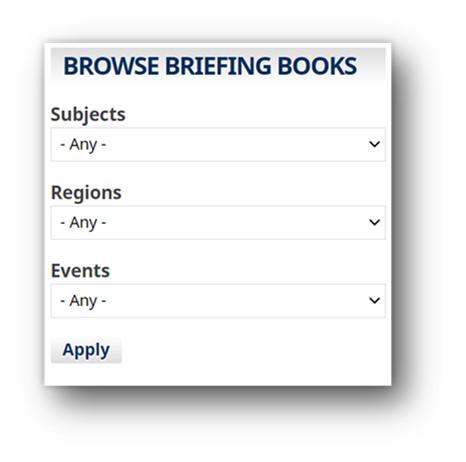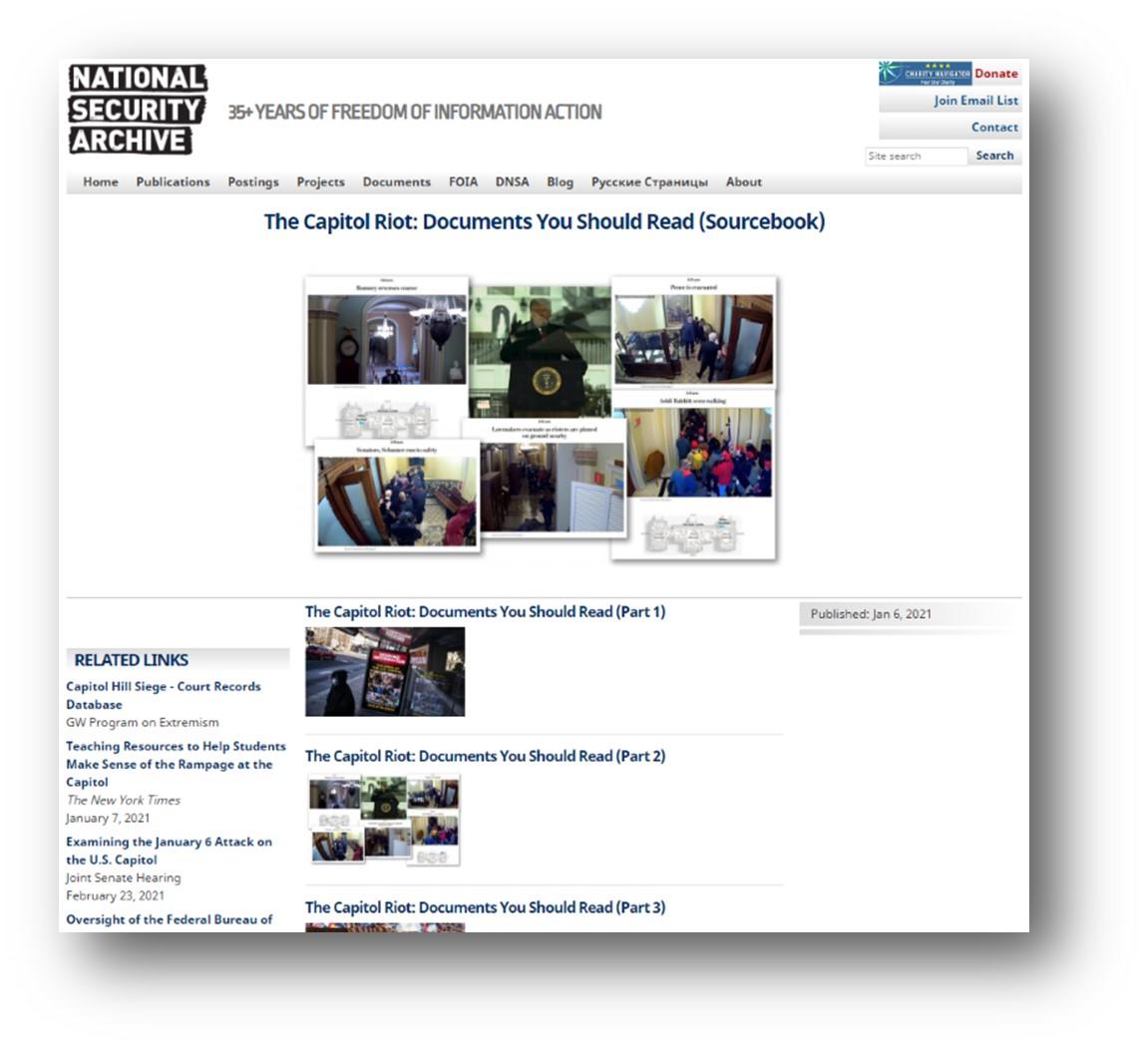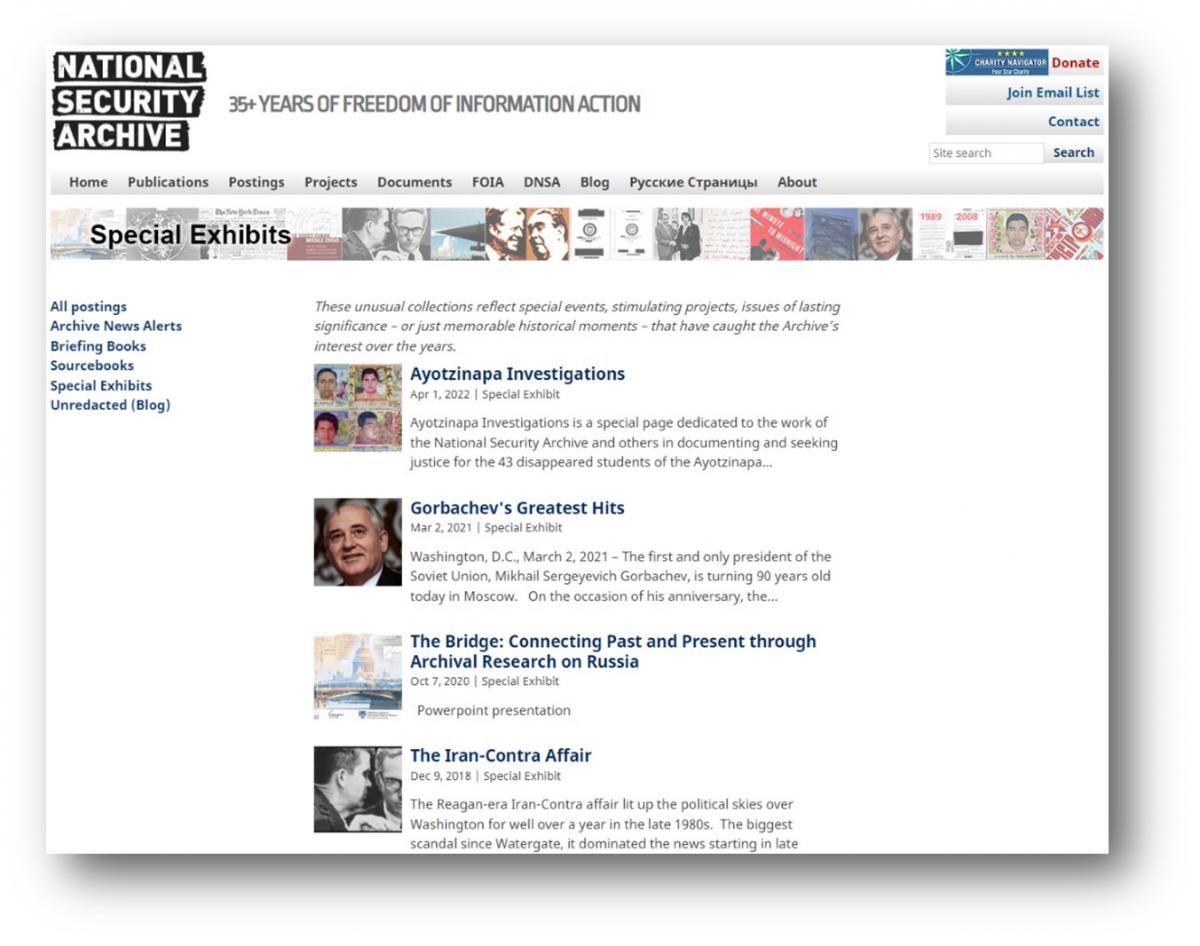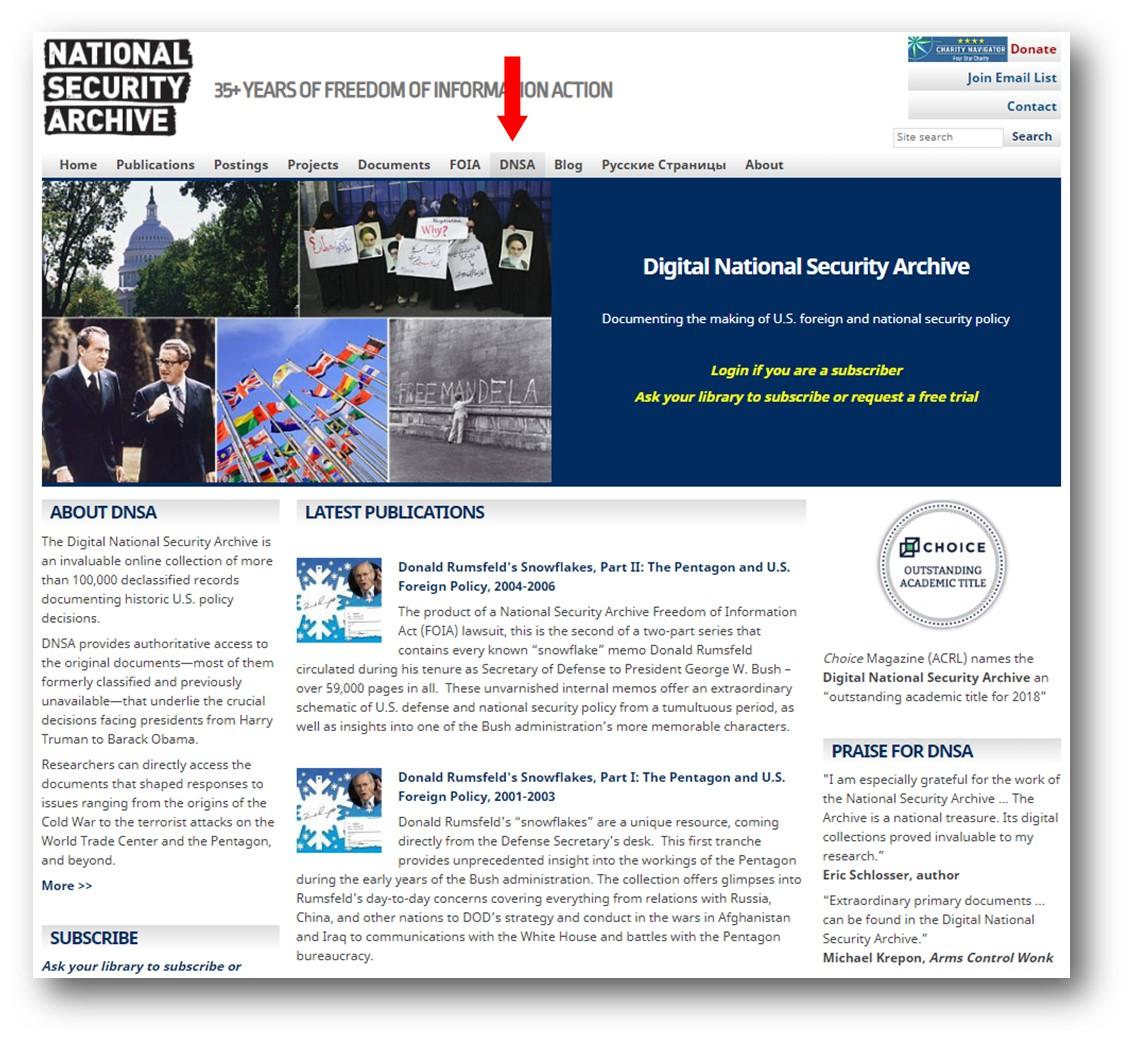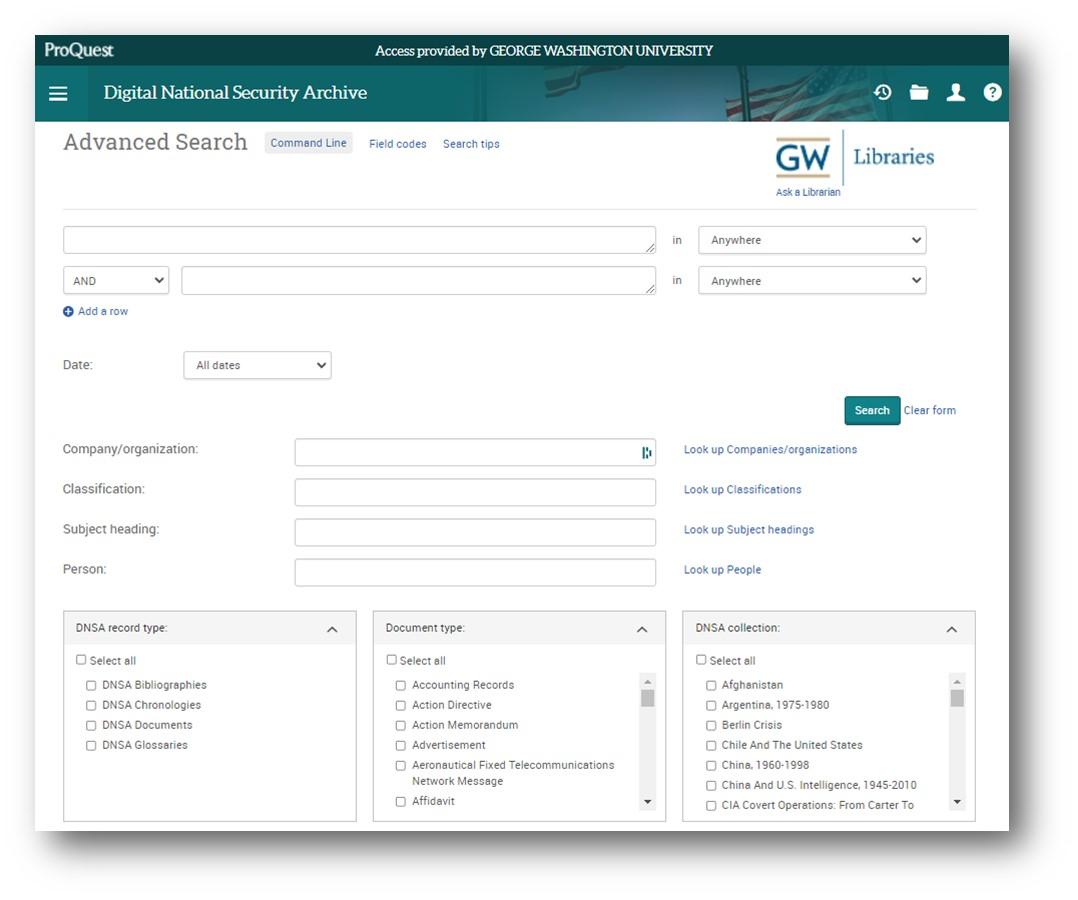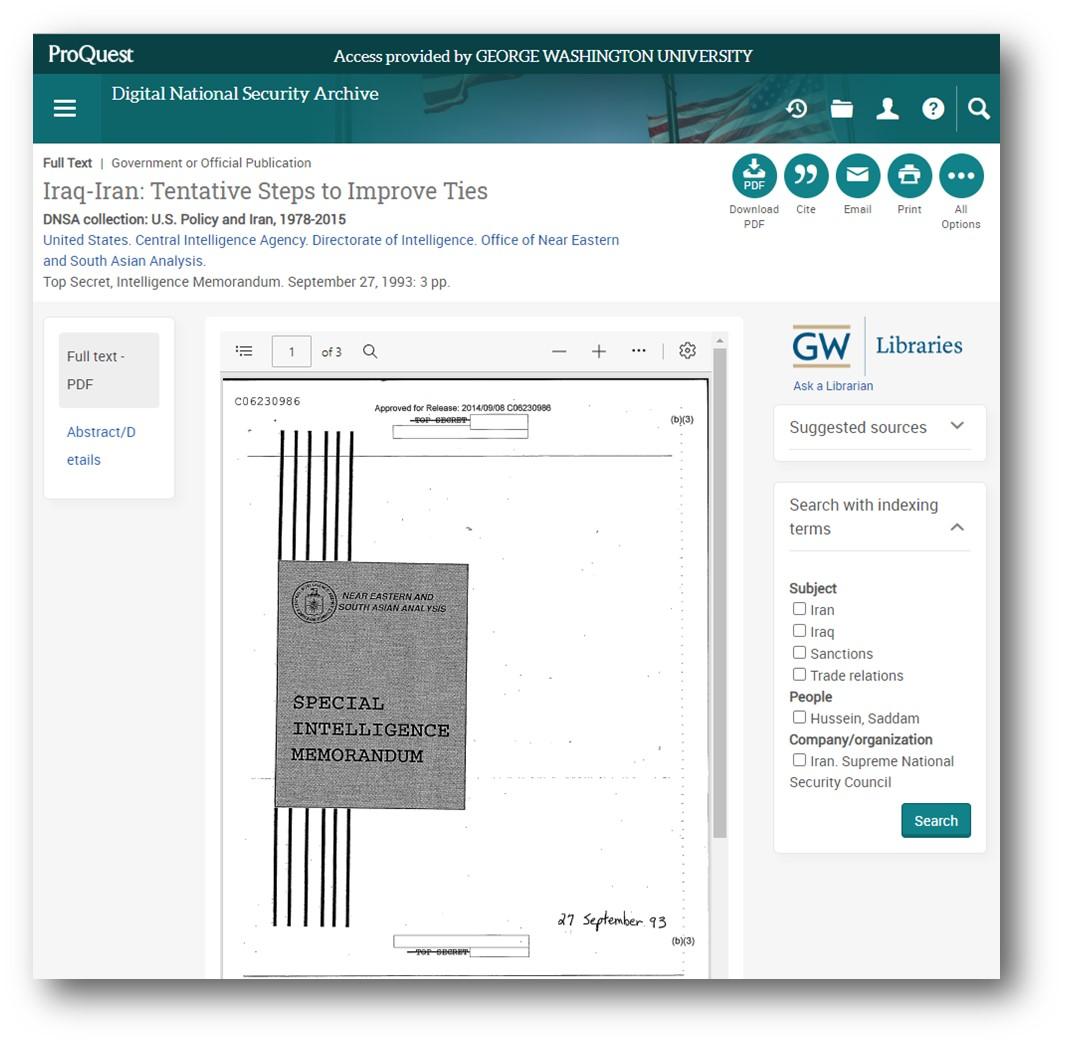Welcome!
The National Security Archive is an award-winning investigative journalism center, research institute, and archive of declassified U.S. documents. In 1999, we won a Special George Polk Award for “piercing self-serving veils of government secrecy, guiding journalists in search for the truth and informing us all.” Since then, the organization, its staff, and fellows have variously earned an Emmy, a Peabody, two Pulitzers, and numerous other honors.

In fact, our most important and widely used materials are accessible through the Web, including more than 890 expertly curated electronic briefing books of key primary sources, and our enormous dataset of professionally indexed, declassified documents in the Digital National Security Archive, published by ProQuest
So, if you are a student or instructor, these records are tailored to your needs — curated, fully searchable, and ideal for research papers or the classroom.
[Note: The Archive's aim is to encourage wide use of our materials, so unless otherwise indicated all declassified U.S. government records on this site are freely available to the public. For details about reprinting or citing original content, please see Terms and Conditions below.]
Documentation From The National Security Archive
The following are our main online resources. All U.S. government records contained in these publications are free to use without copyright restrictions. The Archive encourages re-use and re-publication of its documents. All we ask is that you follow our citation guidelines (see the final section of this Guide) and include a link to our website as the source.
Electronic Briefing Books
Over 890 e-books featuring more than 20,000 annotated declassified documents
Sourcebooks
Compilations of related Archive postings that facilitate in-depth research
Special Exhibits
Unusual collections of lasting historical and public interest
Digital National Security Archive - DNSA
65 large-scale publications totaling more than 150,000 documents and a million pages (access through major libraries)
Documents or Virtual Reading Room
Collection of more than 13500 PDF documents
Unredacted
A platform for breaking news and discussion of secrecy, government transparency, FOIA, and the international right to know.
How to access National Security Archive online resources
Basic search options on the Archive’s web site
There are two main ways to search for material from the home page. The first is the Site Search box at the top right of the page, which will take you to the dialogue box (pic.3.) that includes a variety of helpful filters. This option primarily searches text from postings of all kinds on the web site. Typically, it will not pick up actual documents, which are reproduced in PDF form and can be searched via the Documents—Virtual Reading Room –VRR option (pic.4.)
The second general approach is via our Virtual Reading Room, also linked on the home page. The VRR here’s what the search dialogue looks like, including options to narrow by date and/or field.
The search fields:
Description—the explanation of the document content, made by our analysts
Document Text—the OCRed document content (please note, some old documents or poor quality copies of documents can’t be OCRed properly)
Source—the source where our analysts obtained the document
Title—this field, usually, contains much more information than the document title itself (example: Special Coordination Committee, Summary of Conclusions, "Iran," Top Secret-Sensitive, November 8, 1979)
Specific resources at the National Security Archive
Electronic Briefing Books
The National Security Archive has published over 800 e-books on our public website presenting more than 10,000 declassified documents on a broad range of topics, expertly selected and annotated. Introductory essays provide historical context and related links point readers to additional resources. New e-books are added one or two weeks.
You can peruse EBBs by subject or other criteria through this menu at the top right of the page:
Sourcebooks
These in-depth collections bring together related Archive postings on certain topics to make it easier to explore selected issues in detail. Topics include the January 6 Capitol Riot, September 11 terrorist attacks, U.S. policy toward Saddam Hussein, and the 1983 War Scare.
Special Exhibits
These unusual collections reflect special events, stimulating projects, issues of lasting significance – or just memorable historical moments – that have caught the Archive’s interest over the years.
Unredacted blog
A platform for breaking news and discussion of secrecy, government transparency, FOIA, and the international right to know. Accessible from main menu on any page on Archive’s site (see pic.1), or through the direct link: https://unredacted.com
Digital National Security Archive (DNSA)
The Archive’s flagship series currently comprises 65 large-scale collections totaling more than 150,000 documents and a million pages. The DNSA is distributed through the academic publisher ProQuest and the entire series is available at many university and research libraries. Be sure to check with your local Librarian.
DNSA collections are compiled by recognized experts and fully indexed by professional librarians. Along with PDFs of the documents, the sets include chronologies, glossaries, and other research aids. For a full listing of titles, see here.
How to use the DNSA
Navigate to the ProQuest Digital National Security Archive site either by clicking on this link or going to Gelman’s Database page and typing “National Security Archive” into the search box.
When you get to the page below, fill in the search query fields as appropriate. Note that you can limit your search any number of ways, including by title, date, author, document type, or collection.
When you get a hit, it will look something like this:
Where else can you find documents on the Web?
If you’re not finding exactly what you need at nsarchive.gwu.edu or on DNSA, these online U.S. government repositories contain literally millions of pages of primary documents that are searchable, downloadable, and copyright-free. These are essential resources that every national security or foreign policy researcher should know about.
The National Archives and Records Administration (NARA)

NARA is the “nation’s record keeper,” comprising billions of pages of historically significant government materials (including the Constitution, Declaration of Independence, and Bill of Rights). Archives II is located in College Park, Maryland, and is where most researchers go to explore U.S. federal records.
Access to Archival Databases (AAD) at NARA

AAD is an online, searchable resource covering 60+ archival series at NARA. Among those of most interest to national security researchers are military files from World War II, Korea, Vietnam, the Gulf War, and the War on Terrorism, along with a growing compilation of State Department telegrams from the mid-1970s.
The Presidential Libraries at NARA

NARA maintains 15 libraries of documentation from presidential administrations going back to Franklin Roosevelt. Many of these include museums honoring that particular president and were built with private funds but the archives are maintained by the government. If a document was created by or sent to the president or a member of the White House or NSC staff during a given period, the relevant presidential library is probably the place to start your research.
Department of State FOIA Electronic Reading Room

The State Department posts a large number of materials released to the public under Freedom of Information Act in its online Reading Room. Most of these are cables to and from embassies and other foreign posts, but there are many emails and other records, too.
Central Intelligence Agency FOIA Electronic Reading Room

Perhaps surprisingly, the CIA also posts a very large quantity of records on its website. Even though many of the materials are incidental items that were simply part of an analyst’s file system (including public sources like newspaper clips), and despite the frustrating search engine, this is an absolutely critical resource.
Citing our materials
Note: The National Security Archive follows The Chicago Manual of Style. The online manual and its "Quick Guide" are at https://www.chicagomanualofstyle.org/home.html.
Published Collections
- To cite correspondence such as letters, memoranda, and cables identify as many of the following elements as are available and relevant:
Names of sender and recipient
Title or subject
Place at which it was written
Type of communication and identifying number
Date of communication
Title of published collection
Editor of published collection
Place of publication, publisher, and publication year
Document number
Examples:
John F. Kennedy to Nikita S. Khrushchev, 22 October 1962, The Cuban Missile Crisis, 1962, ed. Laurence Chang (Washington, D.C.: The National Security Archive and Chadwyck-Healey, 1990), Digital National Security Archive accession number CC00844.
Armin H. Meyer to Secstate, "Iranian Arms for Jordan," Tehran, cable 04494, 2 May 1968, Iran: The Making of U.S. Policy, 1977-1980, ed. Eric HoogIund (Washington, D.C.: The National Security Archive and Chadwyck-Healey, 1990), Digital National Security Archive accession number IR00661.
- To cite documents other than correspondence, such as all kinds of reports, memoranda of conversation, and executive orders, identify as many of the following elements as are available and relevant:
Personal or corporate author
Title of document
Type of document and identifying number
Date of document
Title of published collection
Editor of published collection
Place of publication, publisher, and publication year
Document number
Examples:
Harlan Cleveland, "A Most Dangerous Time," speech, 23 November 1962, The Cuban Missile Crisis, 1962, ed. Lawrence Chang (Washington, D.C.: The National Security Archive and Chadwyck-Healey, 1990), Digital National Security Archive accession number CC02570.
U.S. Department of State, Bureau of Intelligence and Research, "Land Reform in Iran: Implications for the Shah's 'White Revolution'," memorandum RNA-3, 8 February 1965, Iran: The Making of U.S. Policy, 1977-1980, ed. Eric Hooglund, (Washington, D.C.: The National Security Archive and Chadwyck-HeaIey, 1990), Digital National Security Archive accession number IR00548.
Bibliographic Entries for Published Collections and Web Briefing Books
Examples:
Chang, Laurence, ed. The Cuban Missile Crisis, 1962. Washington, D.C.: The National Security Archive and Chadwyck-Healey, 1990.
Hooglund, Eric, ed. Iran: The Making of U.S. Policy, 1977-1980. Washington, D.C.: The National Security Archive and Chadwyck-Hea1ey, 1990.
Gregg Henneman, “Black Sheep Over Iraq: The 8th Fighter Squadron in Operation Iraqi Freedom,” November 2004, Secret, in Jeffrey T. Richelson, “The Area 51 File: Secret Aircraft and Soviet MiGs,” EBB #443, October 29, 2013, https://nsarchive.gwu.edu/briefing-book/intelligence/2013-10-29/area-51-file-secret-aircraft-soviet-MiGs.
TERMS AND CONDITIONS
A fundamental tenet of the National Security Archive's mission is to expand and enhance public discourse on U.S. foreign, intelligence and economic policy. Unless particular materials are specifically restricted as noted on the site, it is the National Security Archive's policy to encourage reproduction and distribution of the materials posted on our site. Your use of this site indicates your acceptance of these terms and conditions.
License to Use Materials Posted on Web Site
You may copy, reproduce and distribute materials from this site pursuant to this nonexclusive, limited license, provided that:
- You maintain all copyright, trademark or other proprietary notices contained in any site content in the course of any use of such content. Copyright is not claimed as to any work of the United States government.
- You cite the National Security Archive as the source of the materials in any reproduction, publication, distribution, or transfer of the materials and you link to the www.nsarchive.org Web site in any electronic reproduction, publication, distribution, or transfer of the materials.
- When reproducing, publishing, distributing, or transferring a published or unpublished document in the National Security Archive collection, you credit the National Security Archive as the source of the document. For your convenience, we provide citation standards for unpublished and published documents in the National Security Archive collection.
- When reproducing, publishing, distributing, or transferring an article or section of the Web site in its entirety, you include the following statement: "These materials are reproduced from www.nsarchive.org with the permission of the National Security Archive."
- You may not edit or otherwise change the substance of the content in any reproduction, publication, distribution, or transfer of an article or section of the Web site that is credited to the National Security Archive, except that you may excerpt portions of the content with credit to the author, where applicable, and the National Security Archive.
Limitation of Liability
The National Security Archive site includes information about the Freedom of Information Act and other laws relating to access to government information. This information does not constitute legal advice. The law changes very rapidly and, accordingly, we do not guarantee that any information on this Web site is accurate and up-to-date. Additionally, the law differs from jurisdiction to jurisdiction, and is subject to interpretation of courts located in each jurisdiction. Legal advice must be tailored to the specific circumstances of each case and the tools and information provided to you may not be an appropriate fit in your case. Nothing that you read or is provided on this Web site should be used as a substitute for the advice of competent legal counsel.
The National Security Archive, its officers, directors, employees, subcontractors, agents, successors, or assigns shall not be liable for any loss, injury, claim, liability, or damage of any kind, including any special or consequential damages, resulting in any way from the unavailability or interruption of its site, delays, inaccuracies, errors or omissions on its site, or in the transmission or delivery of all or any part thereof.
Disclaimer of Warranties
The materials contained on this Web site have been prepared and compiled by the National Security Archive as a service to its readers. The National Security Archive endeavors to provide accurate material on its Web site, but it does not warrant or guarantee the accuracy, completeness, adequacy or currency of the information contained in or linked to this Web site. People using these or other government documents are reminded that government records sometimes contain material that is unverified, inaccurate, distorted or untrue. Further, under the Privacy Act (5 U.S.C. Sec. 552a), federal agencies are not required to verify personal information that may be released under the Freedom of Information Act (5 U.S.C. Sec. 552). The government records available on this site are merely true facsimiles of government records, to the best of our knowledge, and the Archive has not necessarily verified their content independently. Users of information from the National Security Archive site and related sites or links do so at their own risk.
THE SITE, AND ALL ITS CONTENTS, AND ALL SERVICES AVAILABLE THROUGH THIS SITE ARE PROVIDED TO YOU "AS IS" AND "AS AVAILABLE," WITHOUT WARRANTY OF ANY KIND, EITHER EXPRESS OR IMPLIED, INCLUDING, BUT NOT LIMITED TO, THE IMPLIED WARRANTIES OF MERCHANTABILITY, FITNESS FOR A PARTICULAR PURPOSE, OR NON-INFRINGEMENT OF THE RIGHTS OF THIRD PARTIES. YOUR RELIANCE ON ANY INFORMATION FOUND ON THE SITE IS AT YOUR OWN RISK. BECAUSE SOME JURISDICTIONS DO NOT ALLOW THE EXCLUSION OF CERTAIN WARRANTIES, THESE EXCLUSIONS MAY NOT APPLY TO YOU.
Contact Us
If you still have a question about Archive sources or need more information, please let us know by using our contact form ("Contact" button on top of any page or "Contact by email" in the footer of any page). Because most of us are working remotely, we can't promise to get back to you immediately, but we do check these queries daily and will do our best to respond as quickly as possible.



